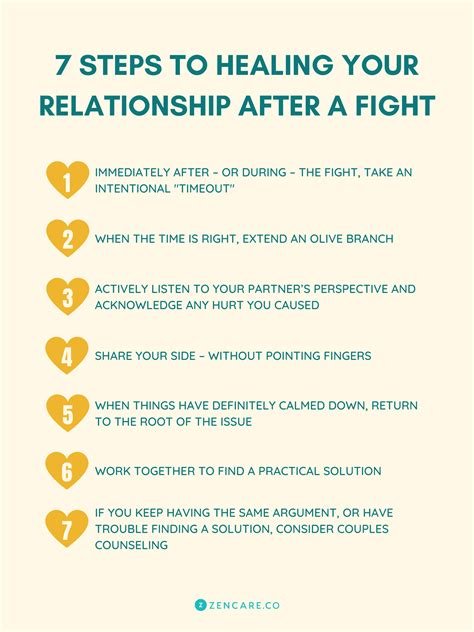Learn effective strategies to repair and recover after a relationship fight. Expert advice on how to fix a fight and rebuild a healthy connection.Have you ever found yourself in a heated argument with a loved one, and then wondered how to repair the damage afterward? Disagreements are a natural part of any relationship, but what really matters is how we handle them and move on from them. In this blog post, we’ll explore some practical tips on how to repair a relationship after a fight, how to fix the damage caused by the argument, and how to recover and move forward in a healthy way. Whether it’s with a partner, family member, friend, or colleague, we all encounter conflicts from time to time, and knowing how to navigate the aftermath can make all the difference. So, if you’re looking for some guidance on how to mend the bonds that have been strained, keep reading for some valuable insights and advice.
How To Repair A Relationship After A Fight
Relationships can be challenging, and fights are a natural part of any relationship. However, the important thing is how you repair the relationship after a fight. One of the key things to remember is to communicate openly and honestly with your partner. It’s important to express your feelings and listen to your partner’s perspective as well. Avoiding communication or shutting down completely can make the situation worse. Take the time to have a calm and respectful conversation to address the issues that led to the fight.
Another important step in repairing a relationship after a fight is to take responsibility for your actions. It’s essential to acknowledge your mistakes and apologize sincerely. Similarly, forgiving your partner for their mistakes is crucial in moving forward. Holding onto grudges or resentment will only hinder the repair process. It’s important to show empathy and understanding towards your partner, and work together to find a resolution. Remember that it takes effort from both parties to repair a relationship after a fight.
How To Fix A Fight
Arguments and conflicts are a natural part of any relationship. It’s important to remember that fighting with your partner doesn’t mean the end of the world. In fact, learning how to fix a fight can actually help strengthen your relationship. The first step in resolving a fight is to take a step back and give yourselves time to cool off. This can help prevent the situation from escalating further and allow both parties to calm down and think rationally.
Once you and your partner have had time to cool off, it’s important to communicate openly and honestly about the issues that led to the fight. It’s crucial to listen to each other’s perspectives and validate each other’s feelings. Instead of focusing on placing blame, try to focus on finding a solution together. Being able to admit when you’re wrong and apologize can go a long way in resolving conflicts. Additionally, setting boundaries and coming up with strategies to prevent similar fights in the future can help strengthen your relationship and prevent future conflicts.
How To Recover After A Fight
After a fight, it’s important to take the time to reflect on what happened and the emotions that were involved. This can be a difficult process, but it’s essential for healing and moving forward. It’s also important to communicate openly and honestly with your partner about the fight. This may involve apologizing if necessary, and expressing empathy and understanding for their perspective. Additionally, finding healthy ways to de-stress and reconnect with your partner can be beneficial in the recovery process.
Another important aspect of recovery after a fight is practicing forgiveness. This involves letting go of resentment and moving forward without holding onto grudges. It’s also important to address any underlying issues that may have contributed to the fight, and work together to find constructive solutions. Finally, seeking professional help if needed can be a valuable step in the recovery process, as a therapist can provide insights and guidance for healing and rebuilding the relationship.
